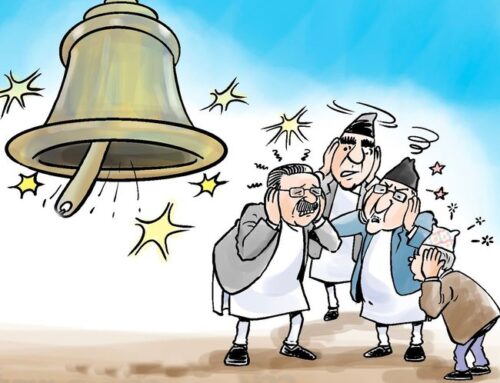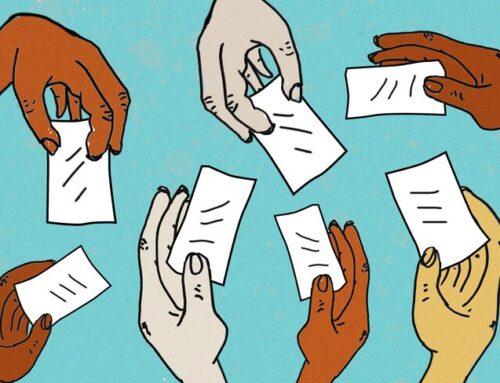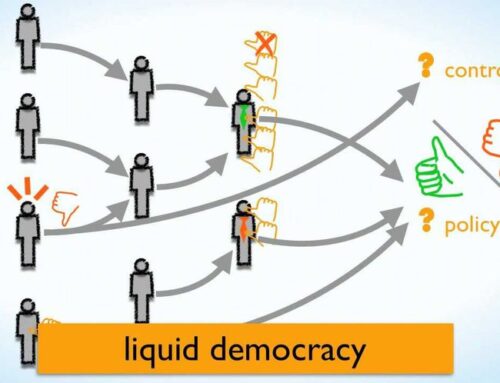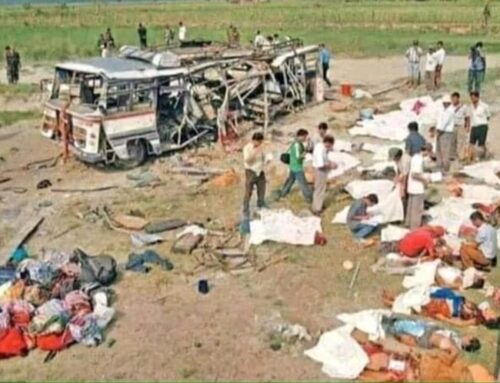The biggest problem Nepal is facing now is the serious erosion of its political system. We have a democracy of old voters, without real competition, with parties in decline, unique candidates who remain in office, and campaign financiers who constitute a true plutocracy.
A bad political system can ruin a country more than bad economic management; a good one contributes more to the progress of a nation than abundant natural resources. As long as the doubt about the morality of the political actor lasts, the political discussion itself is annulled. The problem of corruption is perfect for such a strategy. It has catastrophic effects and is very difficult to prove. In this way, the effects can be brought to the fore, and evidence of their causes can be avoided.
In standard political terminology, the term “rotten politician” can be explained through the term that was introduced by Samuel Hungtinton as political decay. Political decay is a symptom of the destruction of the political system due to the negative actions of political actors such as corruption and a number of other immoral actions like intruders in the Finance Ministry, re-appointment of the finance minister, and many more.
Political damage is related to a number of factors. First, the system factor and the weakness of the state. Usually, the characteristics of political breakdown are caused by this factor. A weak state is one of the causes of the birth of deviant practices and one of them is the problem of systemic corruption.
This characteristic is marked by the opportunity for the political system to occur in congregational corruption and other forms of irregularities. Weak political systems, especially the lack of transparency of the political responsibilities of politicians, are the cause of deviations. Political parties are engaged in making such promises to the general public in the greed of votes, which are very difficult to fulfill.
The use of social media to spread the information that divided society and the Internet becomes the tool to influence many people who are obsessed with information. TV, radio, and newspapers are used for propaganda to spread ideas and news to invite people to rise up to support themselves to hate each other.
The weakness of Nepalese democracy is its lack of awareness of its own true potential and costs. Nepal cannot be a democratic nation If the poor, and the grassroots have no real political involvement. Many people believe it is unsuitable to live in this ugly and perverted society. We are sinking into an ugly, extremely perverted society. A life of values and self-respect is of great glory. Society is being dragged by a group of tasteless arrogant people.
What we have is a political arena to gain power illegally, gain wealth by savagely tackling and massacring political opponents, forming public opinion with evil plots, and so on. Instead of being a political engine for constitutional democracy, political parties are seen only as vehicles for gaining public office. Rule of Law and Democracy is not in practice. The political system is run by vested Ordinance is a burning issue we are facing now with no foreseeable solution.
Our professional politicians are part of a vast aristocratic and criminal clique in its anti-democratic and anti-humanist pursuits. The country is full of pseudo-democracies where everything is perfectly framed by laws designed to protect a handful of leaders and the doctrines they have created. Everything is done so smoothly that the power never escapes from them. Most of our politicians turn out to be plastic politicians. Virtues, morals, character, and political ethics are pushed to the margins. A bridge has been broken between the citizens and their representatives.




